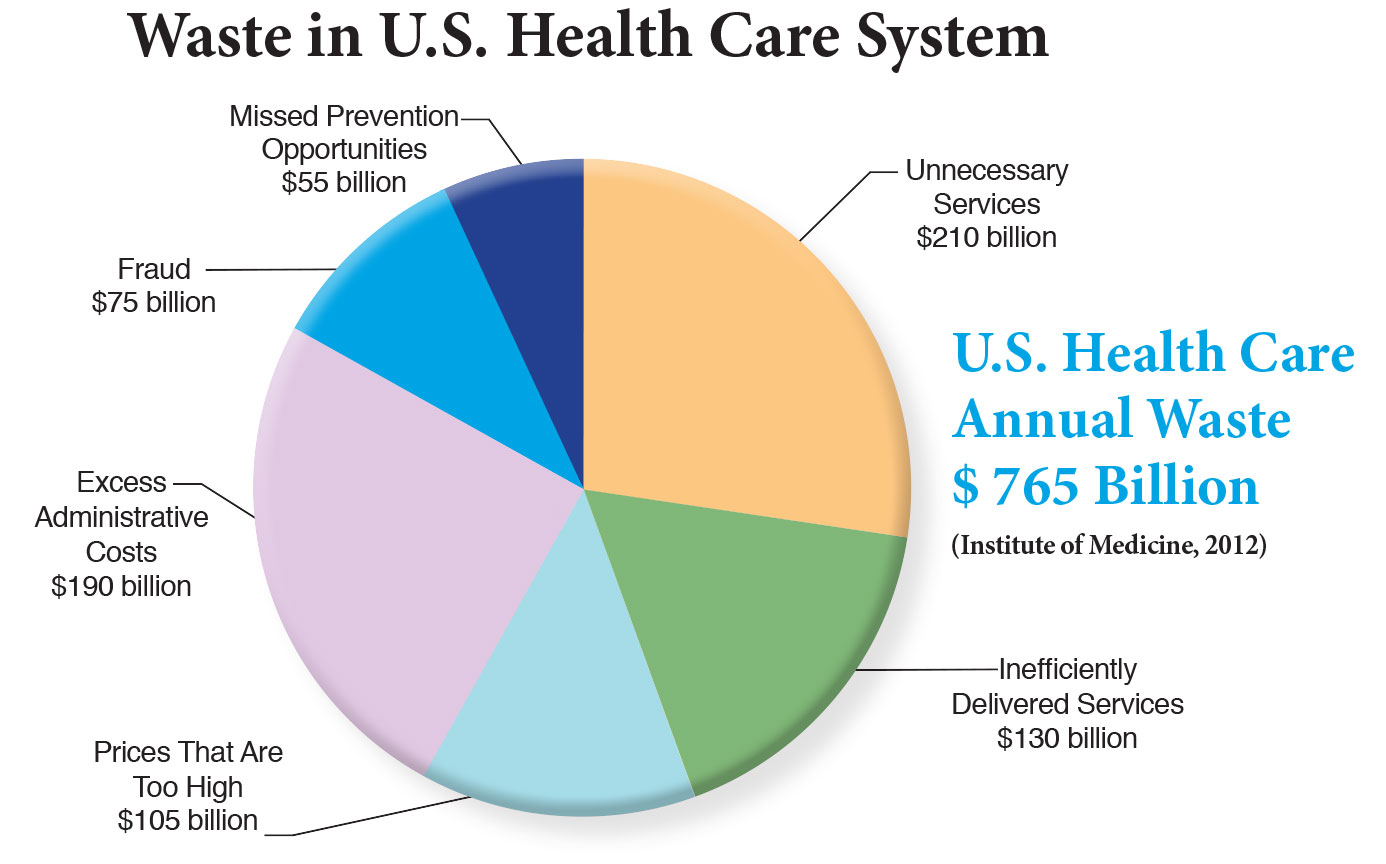Editors Note: The Front Porch will provide further coverage with differing views on ColoradoCare in future issues.

The Institute of Medicine estimates that on a national basis, 27 percent of health care expenditures, $765 billion in 2012, are unnecessary and avoidable (Institute of Medicine, 2013). Graph from ColoradoCare How it Would Work
Buried within the Affordable Care Act is section 1332, or State Innovation Waiver, that allows states to come up with innovative ways to deliver health care while complying with standards established by the Affordable Care Act. Colorado, having successfully created a state exchange, is now eligible under federal law to create a statewide health care system that covers every Coloradan. Colorado is one of the first states to propose such an alternative. It is being called ColoradoCare.
Colorado is one of 24 states that allows citizens’ initiatives on the ballot. In preparation for the 2016 election, citizens have already collected more than the necessary signatures to put ColoradoCare, now Amendment 69, on next year’s ballot.
ColoradoCare is a universal system—many call it a single payer system, but the bill’s authors say a single payer system is not possible on a state basis and the more accurate description is universal health care system. Through ColoradoCare, an elected board of trustees manages all health care financing for the state, but care is still delivered by private entities. This board governs a system that collects and makes payments with revenue from a health care premium tax, billed as follows:
- 6.67 percent payroll tax paid by employers
- 3.33 percent payroll tax on employees
- 10 percent tax on non-payroll income, excluding:
Unemployment insurance, alimony, Social Security, and some pension income up to $33,000 per individual and $60,000 for joint tax filers
Income over $350,000 per individual and $450,000 for joint tax filers
(The premium tax is deductible on federal taxes, reducing the tax impact to 5.577 to 8.537 percent depending on tax bracket.)
The board of trustees that will govern ColoradoCare will be elected by Colorado voters for four-year terms. It will have 21 members from seven regions around the state.
All Coloradans would be covered through ColoradoCare. The system must meet four conditions to be approved federally:
- Cover as many people as are covered through the Affordable Care Act (ACA)
- Provide equally rich benefits as the ACA
- Cost no more than premiums being paid under the ACA
- Not increase the federal deficit
There are multiple issues with our current Colorado health care system that ColoradoCare will solve. And it can help us to improve affordability,” says medical doctor and Colorado State Senator Irene Aguilar, who first introduced the idea of a statewide, non-profit health care financing system.
“Through ColoradoCare, everyone contributes—but based on your income. ColoradoCare prohibits deductibles and limits co-pays so that preventive and primary care are available without payment. Other payments need to be approved by the board of directors,” Aguilar says.
ColoradoCare’s explanatory booklet states, “ColoradoCare saves money through business efficiency. Provider pay is not the major cause of high costs, and ColoradoCare would continue to pay quality providers competitively…” A graph in the booklet shows that the number of physicians increased 200 percent from 1970 to 2010 and in that same time period the number of administrators increased about 3,300 percent (Himmelstein & Woolhandler, 2012).
The ColoardoCare founders believe if health care costs less, people will be more proactive with their health, cutting down the number of hospital visits due to lack of treatment for chronic diseases.They also believe with only one entity paying claims, doctors would spend less time on billing, enabling them to spend more time with patients. Aguilar points out, “Every other developed nation in the world has a way to make sure all people have health insurance.” She hopes this will pass and Colorado will be a model for the rest of the U.S.
For more information, visit www.facebook.com/CooperateColorado or http://coloradocareyes.co/. Watch a video and download a booklet explaining ColoradoCare at http://coloradocareyes.co/about



0 Comments